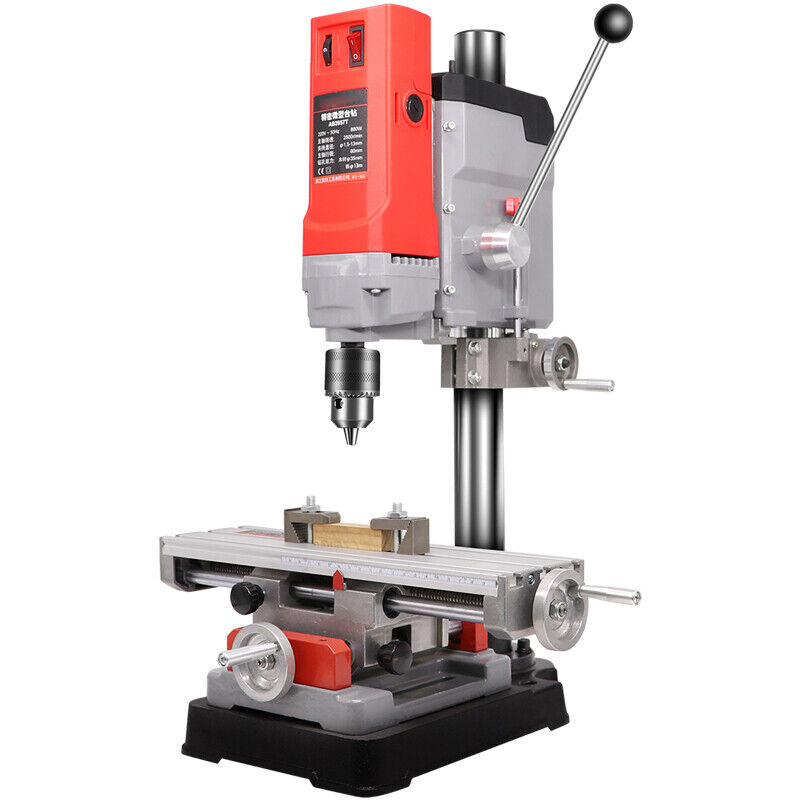In the realm of metalworking, selecting the right drill is paramount to achieving precision, efficiency, and quality results. This article delves into the intricacies of metal drilling, exploring the various types of drills available and providing insights into determining the best-suited drill for metal applications.
1. Understanding Metal Characteristics: A Prerequisite for Drill Selection
Before delving into drill options, it's crucial to understand the characteristics of the metal being worked on. Metals vary in hardness, with materials like stainless steel and hardened steel posing greater challenges than softer metals like aluminum. The hardness and thickness of the metal directly impact the type of drill needed for optimal results.
2. Twist Drills: Versatile All-Rounders for General Metalwork
Twist drills, with their pointed tips and helical grooves, are the go-to choice for general metal drilling. Suitable for materials of moderate hardness, twist drills are versatile and come in various sizes. They are effective for creating holes in aluminum, brass, and mild steel, making them an essential tool in any metalworker's arsenal.
3. Cobalt Drills: Tackling Hardened Steel and Stainless Steel Challenges
When dealing with hardened steel or stainless steel, standard twist drills may struggle to maintain sharpness. Cobalt drills, incorporating cobalt alloy in their construction, offer a solution. These drills excel in drilling through tough and heat-resistant metals, providing durability and precision in challenging applications.
4. Step Drills: Ideal for Sheet Metal and Thin Materials
For precision drilling in thin materials like sheet metal, step drills are an excellent choice. Their conical shape with stepped increments allows for gradual hole enlargement without the need for multiple bits. This makes them particularly effective for creating clean, precise holes in sheet metal and other thin materials.
5. Carbide Drills: Unleashing Power in High-Demand Applications
When power and durability are paramount, carbide drills step into the spotlight. Carbide, a hard and heat-resistant material, equips these drills to handle demanding applications such as drilling through hardened steel or cast iron. Carbide drills provide longevity and maintain sharpness in high-stress situations.
6. Considerations for Drill Speed and Lubrication: Enhancing Performance
In metal drilling, optimizing drill speed and lubrication is crucial. Different metals require specific speed settings to prevent overheating and premature wear. Additionally, using appropriate cutting fluids or lubricants not only enhances the drilling process but also prolongs the life of the drill by reducing friction and heat.
7. The Importance of Drill Point Geometry: Tailoring to Metal Type
Drill point geometry plays a vital role in metal drilling. Split points, for example, are effective for reducing the need for a pilot hole and provide better precision. Understanding the specific geometry suitable for the type of metal being drilled enhances drilling efficiency and ensures cleaner, more accurate holes.
8. Conclusion: Precision Tailoring for Optimal Metal Drilling
In conclusion, the choice of the best drill for metal applications is a nuanced decision influenced by factors such as metal type, thickness, and application demands. Each type of drill discussed – twist drills, cobalt drills, step drills, and carbide drills – has its unique strengths, making it essential for metalworkers to tailor their selection based on the specific requirements of each project. By mastering the art of selecting the right drill for the job, metalworkers can elevate their craftsmanship, ensuring efficiency, precision, and longevity in their metalworking endeavors.

